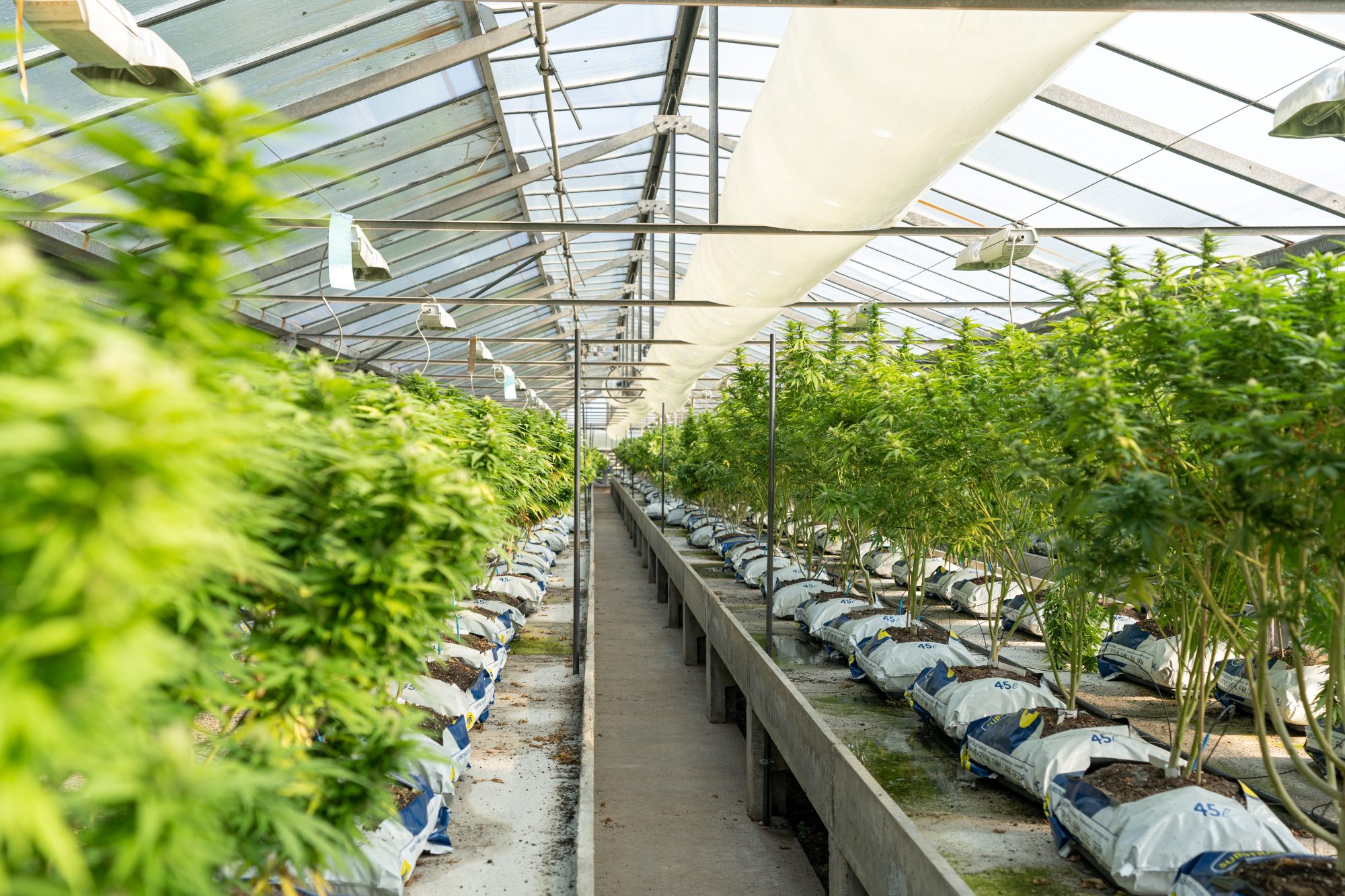Join us as we uncover the secrets to obtaining the cannabis startup funding you need to turn your dreams into reality.
One of the first steps in securing funding for your cannabis venture is to develop a solid Cannabis Business Plan. This comprehensive document not only outlines your vision and goals but also provides potential investors with a clear roadmap for success. We will guide you through the process of creating a compelling business plan that showcases the unique qualities of your cannabis startup and convinces investors of its potential. Join us as we uncover the secrets to obtaining the funding you need to turn your dreams into reality.
How Big is the Global Cannabis Market?
The cannabis market has experienced remarkable growth in recent years, surpassing analyst predictions and exceeding expectations. This growth can be attributed to several factors, including the increasing acceptance and legalization of medicinal and recreational cannabis around the world.
1. Shifting attitudes towards cannabis
As countries continue to push towards legalizing medicinal and recreational cannabis, public perception of the plant has shifted significantly. Cannabis is no longer seen solely as a vice, but rather as a potential source of relief for various medical conditions and a recreational alternative to alcohol. This changing perception has created a surge in demand, leading to the exponential growth of the cannabis market.
2. Legalization efforts
A significant catalyst for the growth of the cannabis market is the progressive legalization of cannabis. Countries like Canada, Uruguay, and several states in the United States have legalized recreational cannabis, while many others have implemented laws to allow for medical use. This expansion of legal access has opened up new markets and created tremendous opportunities for entrepreneurs and investors in the cannabis industry.
3. Economic impact
The economic impact of the cannabis industry cannot be overlooked. Legal cannabis sales have generated billions of dollars in tax revenue, job creation, and economic growth, further fueling the market’s expansion. As governments realize the potential benefits of legalizing cannabis, they become more motivated to push for further legalization, spurring the industry’s growth.
4. Medical advancements

Another key factor behind the cannabis market’s growth is the increasing recognition of its medicinal properties. Research and scientific studies have revealed the potential therapeutic benefits of cannabis in treating various conditions, such as chronic pain, epilepsy, multiple sclerosis, and even certain types of cancer. As more medical professionals and patients embrace cannabis as a viable treatment option, the demand for medicinal cannabis products continues to rise, contributing to the market’s growth.
5. Innovation and product diversification
The cannabis industry has witnessed remarkable innovation in recent years, leading to a wide range of products beyond traditional flowers and edibles. This diversification includes the development of cannabis-infused beverages, topicals, concentrates, and vaporizers, among others. These new product offerings attract a broader consumer base and create new revenue streams, driving the overall growth of the cannabis market.
Which Markets Are Leading the Cannabis Market?
Europe: A Growing Cannabis Frontier
The European cannabis market is on the rise, with projected revenues of $37 billion (USD) by 2027. This growth is driven by key countries such as Germany, the UK, and France. It’s important to note that the level of cannabis legalization differs across the continent.
Spain, for example, allows cannabis use and possession only in private areas. On the other hand, Malta has fully legalized cannabis as of December 2021, creating opportunities for businesses in the region. The Netherlands is famous for its marijuana culture, but cannabis isn’t actually fully legal in the country. In Austria, citizens can purchase and grow marijuana seeds and plants, but recreational cannabis usage remains illegal.

North America: A Patchwork of Legalization
North America boasts three major cannabis markets: Canada, Mexico, and the United States. In Canada, cannabis was fully legalized in 2018, creating a thriving industry. Mexico followed suit in 2021, legalizing cannabis for both medical and recreational use. The United States has a more fragmented approach to legalization, with laws varying from state to state.
Currently, 25 out of the 50 states have fully legalized cannabis, while 14 have legalized it for medical purposes. Marijuana remains illegal in the remaining 12 states. Despite this patchwork of legislation, the North American cannabis market is expected to reach significant heights. According to projections, recreational cannabis sales are estimated to reach $30.5 billion for adult use and $8.6 billion for medical use by 2025.
Asia: Emerging Opportunities
With nearly half of the world’s population, Asia is now starting to embrace the potential of cannabis. While the region has been historically conservative when it comes to marijuana, changing attitudes are leading to new opportunities. For example, Thailand has legalized private cultivation of cannabis at home. South Korea, Japan, and Malaysia are also exploring the potential for pharmaceutical and medical applications.
These shifts in cannabis regulations have sparked optimism for the Asian market. Prohibition Partners estimates that the Asian cannabis market could become a $100 billion industry by 2026. This growth presents exciting prospects for businesses and entrepreneurs looking to tap into this emerging market.
The Future of Cannabis on a Global Scale
As the global cannabis industry continues to evolve, it is essential to stay informed about the top markets around the world. Europe, North America, and Asia each present unique opportunities and challenges for cannabis businesses.
Whether it’s navigating the varying degrees of legalization in Europe, capitalizing on the patchwork of laws in North America, or exploring the emerging market in Asia, entrepreneurs in the cannabis industry must stay agile and adaptable.
Related Reading
How Much Money Do You Need to Start a Cannabis Startup Business?
When it comes to the cannabis industry, there are three main business models that dominate the market. Each of these models plays a crucial role in meeting the needs of consumers and driving the industry forward. Let’s take a closer look at each of these models and the approximate costs associated with setting up each type of business.
Cannabis Cultivation & Manufacturing Companies: Bringing Nature’s Gift to Life

Cannabis cultivation and manufacturing companies are responsible for growing cannabis from seed to sale. They may also work with cannabis products to refine them into finished goods such as edibles, topicals, flowers, concentrates, and tinctures. Setting up such a business requires careful planning and significant investment.
To give you an idea of the costs involved, let’s consider a hypothetical scenario that CannabisBusinessPlans.ca created where we have a 7,700-square-foot facility that houses 1,000 plants. The approximate costs to set up this type of business include:
1. Warehouse Rent
Renting a suitable warehouse space can cost around $70,000 per year.
2. Build Out and Improvements
Transforming the warehouse into a cultivation facility may require an investment of approximately $50,000.
3. Growing Equipment
Acquiring the necessary equipment for cultivation, such as lighting systems, ventilation, irrigation, and climate control, can cost around $150,000.
4. Lighting System
An efficient lighting system, crucial for the growth and development of cannabis plants, can cost approximately $120,000.
5. Alarm & Security System
Implementing a robust security system to protect the valuable plants and comply with regulations can require an investment of around $40,000.
6. Licensing & Legal Fees
Navigating the legal landscape of the cannabis industry comes with its own costs, including licensing and legal fees, which can amount to approximately $50,000.
7. Direct Costs
During the initial months before generating profits, direct costs such as utilities, fertilizers, pesticides, and other supplies can add up to around $200,000.
8. Administrative Expenses
Running a business involves administrative expenses, including staffing, marketing, and day-to-day operations, which can amount to approximately $50,000.
9. Other Expenses, Including Salaries
Taking into account salaries, insurance, and other miscellaneous expenses, the total can reach approximately $100,000.
Cannabis Testing Laboratories: Ensuring Quality and Safety
Cannabis testing laboratories play a critical role in the cannabis industry by analyzing samples of cannabis products for potency, contamination, and other factors as determined by local regulations. These labs play a vital role in ensuring consumer safety, product development, and regulatory compliance. Setting up a cannabis testing laboratory can be a costly venture.
According to Agilent, a leading provider of scientific instruments and analytical solutions, it can cost around USD 2 million to establish a cannabis testing laboratory. This cost reflects the need for highly specialized equipment and the hiring of expert staff to operate the lab effectively. As regulations and quality standards continue to evolve, the investment in a well-equipped and capable testing laboratory becomes even more crucial.
Cannabis Dispensary: A Haven for Consumers
Dispensaries are often the main touchpoint for consumers in the cannabis industry. These establishments provide a wide range of cannabis products to meet the diverse needs of consumers. The cost of opening a dispensary can be surprising, as there are various factors to consider.
According to Cova, a leading cannabis retail software provider, the cost of opening a dispensary can range from $150,000 to $2 million. This wide range exists due to factors such as licensing costs, staffing requirements, rent, and up-front renovation or development costs. Dispensaries must comply with strict regulations and invest in security measures to ensure the safety of customers and products.
Related Reading
- Cannabis Business Consultants
- Seed To Sale CRM
- Cannabis Cultivation Business Plan
- Seed To Sale Funding
- Cannabis Dispensary Business Plan
- Cultivation SOP Template
- Cannabis Licensing Consultant
- Cannabis Venture Capital
- Grants For Cannabis Business
Which Type of Cannabis Business is the Most Profitable?
According to a report by MJBizDaily, the cultivation and infused products/concentrates sectors in the cannabis industry are proving to be particularly lucrative. In fact, 29% of wholesale growers and 27% of infused companies reported that they are “very profitable.” This is a significant figure that highlights the potential for success in these sectors.
Wholesale Growers in Meeting Rising Cannabis Demand
The cultivation sector involves the process of growing and harvesting cannabis plants, which serve as the foundation for the entire industry. With the increasing demand for cannabis products, wholesale growers are finding themselves in a position of great opportunity. By cultivating high-quality cannabis strains, they can supply the market with the raw materials needed for various products.
Cannabis-Infused Products and Concentrates

The infused products/concentrates sector focuses on creating value-added cannabis products such as edibles, oils, tinctures, and concentrates. This sector has seen tremendous growth as consumers seek alternative consumption methods to traditional smoking. By transforming cannabis into different forms, infused companies are able to target a wider audience and cater to diverse preferences.
Green Wave of Opportunities
One of the key factors contributing to the profitability of these sectors is the growing acceptance and legalization of cannabis. As more states and countries open up to the cannabis industry, the market expands, creating more opportunities for businesses to thrive. The increasing awareness about the medicinal properties of cannabis has led to a surge in demand for cannabis-infused products, especially in the wellness and medical sectors.
The Rise of Craft Cannabis Brands: Meeting the Demand for High-Quality Artisanal Products
As the cannabis industry evolves, there is a noticeable trend towards craft cannabis products and brands. Consumers are becoming more discerning and seeking out high-quality artisanal cannabis products, as opposed to mass-produced ones. This shift in consumer preferences presents a significant opportunity for entrepreneurs and investors looking to enter the market.
Premium-Quality Craft Cannabis Brands
Craft cannabis brands are gaining traction and raising substantial funding for their operations. These brands focus on producing premium-quality cannabis products, often using organic and sustainable cultivation methods. By differentiating themselves from mass-produced products, craft cannabis brands are able to attract a niche market of consumers who value quality, uniqueness, and an authentic experience.
Brands and Their Meticulous Approach
Consumers are increasingly drawn to craft cannabis brands because they offer a more personalized and curated approach to cannabis consumption. These brands often prioritize the use of specific strains, precise cultivation techniques, and meticulous product development processes. This attention to detail results in products that are not only potent but also offer distinct flavours, aromas, and effects.
Craft Brands as Agents of Local Support and Sustainability
The rise of craft cannabis brands is not only driven by consumer demand but also by the desire to support local businesses and promote sustainability. Many craft cannabis brands emphasize their commitment to the environment, community, and social responsibility. By aligning themselves with these values, they are able to develop strong brand loyalty and forge meaningful connections with their customers.
Pro Tip for Aspiring Cannabis Cultivators
A comprehensive seed-to-sale platform simplifies cannabis cultivation operations, offering centralized integration from seed germination to product sales. This minimizes manual data entry, reduces errors, and provides real-time inventory tracking, sales reports, and compliance monitoring. Cultivators can efficiently manage their operations, make informed decisions, and optimize productivity and profitability.

Did you know? GrowerIQ has an industry-leading Seed-to-Sale Cannabis Software (with quality management built in) that is designed to uncomplicate cannabis production for cannabis producers throughout the world.
Related Reading
- Cannabis Cultivation Software
- Cannabis Inventory Software
- Cannabis Distribution Software
- Cannabis Growing Consultants
- Commercial Cultivation Business Plan
- Cannabis Angel Investors
5 Ways to Secure Cannabis Startup Funding
1. Debt Capital: Unlocking Financial Opportunities
Cannabis startup loans
These loans are specifically tailored for new businesses in the cannabis industry. They provide capital to cover various startup expenses, such as licensing fees, equipment purchases, and initial inventory.
Equipment financing loans
This type of loan helps cannabis businesses acquire the necessary equipment for cultivation, extraction, or manufacturing. Lenders use the equipment as collateral, making it easier for startups to secure the funding they need.
Regular cannabis business loans
Similar to traditional business loans, these loans provide funding for general business purposes, such as expansion, marketing, or working capital. They are not limited to startups but can be accessed by established cannabis businesses as well.
Hard money lenders
Hard money lenders offer short-term, high-interest loans based on the value of collateral, such as real estate. While traditional loans due to industry-related risks.
Traditional venture capital
According to Torys, Historically, traditional venture capital firms have been hesitant to invest in the cannabis industry due to legal and regulatory uncertainties. Smaller venture capital funds and high-net-worth individuals have stepped in, embracing the risk in exchange for potential early-mover advantages or opportunities for mergers and acquisitions.
Private equity funds
Similar to venture capital, private equity funds have been cautious about investing in cannabis startups. As the industry matures and regulations become more favorable, we can expect larger private equity firms to enter the space, attracted by the industry’s growth potential.
3. Crowdfunding: A Community-Powered Approach
The rise of crowdfunding
Crowdfunding has become a popular way for entrepreneurs to raise capital, leveraging the power of the internet and social networks. It allows individuals to contribute small amounts of money to support a project or business.
Crowdfunding in the cannabis industry
Cannabis companies are starting to tap into the crowdfunding trend, using platforms like SeedInvest, FundAnna, and Arcview Capital. This enables them to access a broader range of potential investors who are interested in supporting the growth of the cannabis industry.
4. Government Funding: A Boost from Authorities
Governments are increasingly providing grants and incentives to support the development of the cannabis industry. For instance, Canada has launched programs like the Sustainable Canadian Agricultural Partnership, which allocates significant funding to farms and agricultural businesses. These funds can be used for various purposes, including export market development, equipment adoption, and product development.
5. Your Customers: Building from the Ground Up
One of the best ways to raise money is by generating revenue through sales. By starting small and agile, cannabis startups can get their products into the market and begin generating income. Bootstrapped businesses, built by resilient and creative entrepreneurs, often find innovative ways to sustainably grow their business.
How Seed to Sale Software Will Streamline Your Business Operations
Running a cannabis business operation, particularly a cannabis cultivation facility, can be administratively exhausting. The sheer amount of tasks and responsibilities involved in the cultivation process, combined with the need for strict compliance with regulations, make it a complex and demanding endeavor. Let’s take a closer look at some of the factors that contribute to this administrative exhaustion.
1. Tracking Plant Progress from Seed to Sale
The journey of a cannabis plant, from its early stages as a seed to its final sale as a product, involves meticulous tracking and documentation. It is crucial to keep detailed records of each plant’s growth, including information about its genetics, cultivation methods, nutrient intake, and environmental conditions. This tracking is essential for compliance purposes, as regulations often require detailed reporting on plant progress and product traceability.

2. Ensuring Healthy Plant Growth
The success of a cannabis cultivation facility relies on the ability to consistently produce high-quality plants. This requires constant monitoring of various factors, such as temperature, humidity, light intensity, and nutrient levels. Any deviation from optimal conditions can have a significant impact on plant health and yield. Cultivators must be vigilant in identifying and addressing any issues promptly to ensure healthy plant growth.
3. Compliance with Regulations
The cannabis industry operates under strict regulations, and adherence to these rules is paramount to avoid legal issues and maintain a reputable business. Compliance requirements can vary from region to region but commonly include licensing, security measures, quality control, and reporting obligations. Keeping up with the ever-changing regulations and ensuring full compliance can be a time-consuming and demanding task.
4. Inventory Management
Managing inventory is crucial for any business, but it becomes even more challenging in the cannabis industry due to strict regulations surrounding product tracking and reporting. Cultivation facilities must accurately track the quantity and movement of plants and products at every stage, from propagation to harvest, processing, and distribution. This level of detailed inventory management can be overwhelming and time-consuming without the right tools and systems in place.
5. Quality Control
Producing high-quality cannabis products requires rigorous quality control measures. This includes regular testing for potency, purity, and contaminants. Cultivators must carefully monitor the quality of their products throughout the cultivation process and take corrective actions when necessary. This can involve additional administrative tasks, such as documenting test results, analyzing data, and implementing improvements to meet quality standards.
6. Compliance Training and Documentation
In addition to the operational aspects, running a cannabis cultivation facility involves ensuring that all employees are well-versed in compliance requirements. This includes educating staff on regulations, safety protocols, and best practices. Cultivators must also maintain detailed documentation of training sessions and employee certifications to demonstrate compliance with industry standards.
GrowerIQ Seed to Sale Software Streamlines Business Operations
From tracking plant progress from seed to sale, ensuring healthy plant growth, and maintaining compliance with regulations, to managing inventory, implementing quality control measures, and providing ongoing training, the administrative workload can be overwhelming. With the right tools and systems in place, such as GrowerIQ’s seed to sale software, cannabis operators can streamline their operations and alleviate much of the administrative burden.
Discover how GrowerIQ’s seed-to-sale software can help you set up all of the components of a successful cannabis production operation without any hassle. Questions we haven’t covered? Please reach out and let us know. GrowerIQ serves clients coast to coast, and we’re ready to help your team today.
Streamline Cannabis CultivationAbout GrowerIQ
GrowerIQ is changing the way producers use software - transforming a regulatory requirement into a robust platform to learn, analyze, and improve performance.
To find out more about GrowerIQ and how we can help, fill out the form to the right, start a chat, or contact us.

